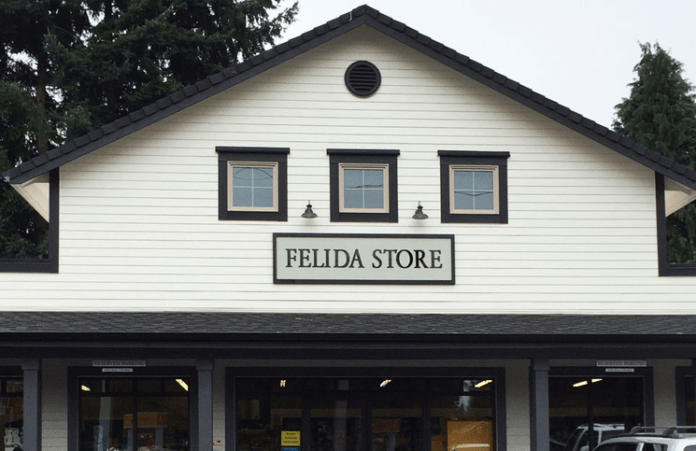If you were to ask ten people to draw a convenience store, chances are you’d get back ten nearly identical drawings; there just isn’t much variation when it comes to the design of a stop-and-go market, but don’t tell that to Don Rhoads, president of The Convenience Group.
Based in Vancouver, The Convenience Group owns 12 Minit Marts in the Vancouver area – six are franchised and six are company-owned. Several of the stores were constructed in the 1970s, and, according to Rhoads, the tired construction (think cinder block motif), flat roofs and run-down nature of the buildings have kept them from meeting their full potential. For that reason, the company is investing $300,000-$500,000 in each store to pay for full-scale remodels.
Rhoads explained that the store makeovers are about much more than creating a more aesthetic storefront; they’re about building community.
“We’re locally owned [and] operated,” he said. “We wouldn’t be around if it wasn’t for those folks in the community. It’s important for us to give back.”
The company kicked off its series of remodels two years ago with the Felida Minit Mart (12604 NW 36th Ave, Vancouver). Exterior work on the building wrapped up last year.
According to Rhoads, the idea to update the Felida store (and, subsequently, the other 11 stores) came from a conversation he had with a customer who had a photograph of the business that stood on the site before the Minit Mart was constructed in 1978. The Felida Store was built in 1930s, and Rhoads’ customer thought that it would be “really cool” if the store could be restored to look of the original structure.
“The Felida store is unique to the Felida area,” Rhoads said. “It showcases the history of the original store and the history of the Felida community.
“We’re doing that with every store we have in the chain now,” he added. “One by one we’re going to take a look at the character of the community, what’s important to the folks that live there, and in the remodel, you know, [factor in] their desire.”
For Rhoads, the most important part of his business model is that his stores make a positive impact in their communities. To achieve this goal, he models each store after the needs he identifies locally. For example, the La Center Minit Mart is the only market in town, so it has an expanded produce section to serve community members as a one-stop place for groceries and other basic household needs.
Rhoads also emphasized the importance of community in the products themselves, sourcing locally whenever possible.
“If you look at our beer and wine selection, we skew toward Northwest wines,” he said. “The craft beer selection is – a lot of those beers are from the Northwest and we are first in market for the craft beer that’s new. We try to bring the trial, the experiments for that particular brand.”
The changes seem to be working. Rhoads said that since the company began remodeling its stores and getting a more complete idea of the community needs, the Minit Marts are enjoying an increase in business and a more community-oriented crowd.
With that success, the company is also thinking about growth. Two new stores are planned for later this year – one on NW 36th and another on the corner of 88th St. and St. John’s Ave. Additionally, next year, the company will spend $2 million to expand the Minit Mart in Fruit Valley.




